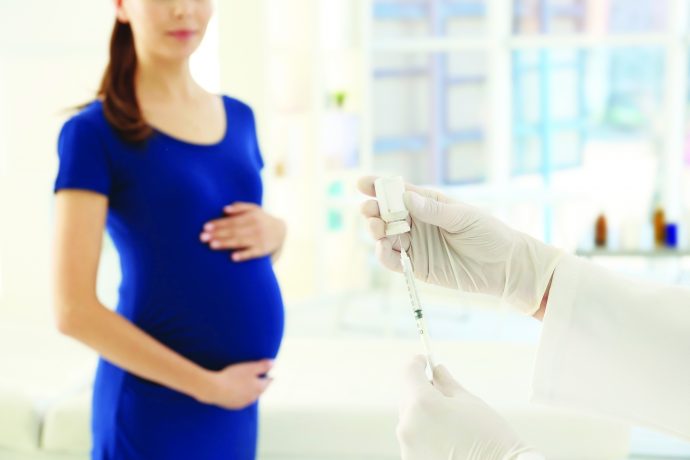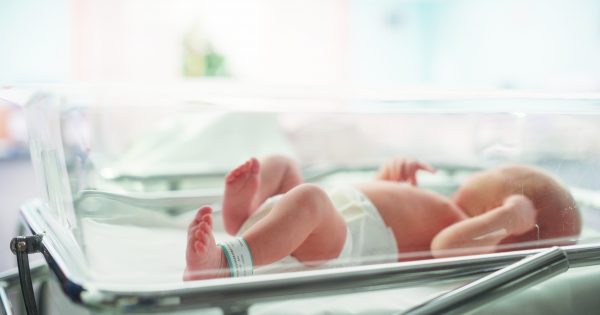Pertussis or whooping cough is on the rise, and this disease can be deadly for infants. Vaccination during pregnancy is one way mothers can provide early protection to their baby.
Most parents know that pertussis is one of the vaccine-preventable diseases and we can get our children vaccinated against the disease with the DTaP (diphtheria, tetanus, pertussis) vaccine, which is covered in the National Immunisation Programme (NIP). Nevertheless, the number of pertussis cases in Malaysia in the past few years has increased to a worrying level. From just 41 cases in 2010, the figure has risen to 892 cases in 2018 (World Health Organization), with 22 deaths recorded (Ministry of Health).
Various factors may have contributed to the resurgence of pertussis. Being a highly communicable disease, there is a trend of a pertussis outbreak occurring every two to five years. Even though the vaccine coverage rate for DTaP vaccine in Malaysia is considered high, an increase from 637 cases (2013) to 1404 cases (2017) of parents refusing vaccination for their children presents a growing concern. Other factors owing to the resurgence of pertussis include better detection of milder and atypical pertussis cases, as well as waning of immunity among adolescents and adults, who then may transmit the disease to unvaccinated babies and children.
Why vaccinate in pregnancy?
Pertussis is a serious illness that can be fatal to infants. However, infants can only receive DTaP vaccine starting from two months of age. To avoid the gap in protection (0-8 weeks after birth), during which babies are very vulnerable to diseases, it is recommended that mothers get vaccinated during the third trimester or between the 16th to 32nd weeks of pregnancy.
Mothers can pass antibodies produced by their body after vaccination through the placenta to their baby. The antibodies will provide passive protection to the baby during the first few weeks of life. This will also protect mothers against infection and prevent the risk of transmitting the disease to their baby after delivery. Vaccination during the recommended period in pregnancy will ensure optimal transfer of antibodies from a mother to her baby, as the level of antibodies is highest about two weeks after vaccination.
Which vaccine to be given?
The vaccine recommended for pregnant women is Tdap vaccine, which is a one-dose booster shot for adults to protect against tetanus, diphtheria and pertussis. One shot is recommended for each pregnancy, preferably during the early part of the third trimester. Tdap vaccine is different from the infants’ DTaP vaccine, which is given in three doses on the 2nd, 3rd and 5th month, plus a booster shot on the 18th month.
Vaccination during pregnancy is one way to ensure protection against pertussis (and other diseases) for newborns, who may get infected before they are ready to receive their own scheduled vaccinations under the NIP. During this interim period, a baby’s immune system is still underdeveloped and vulnerable to disease. People in close contact with baby should also consider taking the necessary vaccinations (cocooning) as they may be carriers and inadvertently transmit disease to the baby.
Know the disease

Pertussis is a highly contagious respiratory illness caused by the bacteria Bordetella pertussis.
Symptoms:
- Severe coughing fits
- Difficulty or pauses in breathing
- Making “whoop” sound or gasping for breath between coughs (infants may not show this characteristic symptom)
- Vomiting after coughs
Complications:
- Dehydration
- Breathing difficulty
- Pneumonia
- Seizures
Vaccination and pregnancy
Only certain vaccines are recommended during pregnancy, for example Tdap (pertussis), influenza and HepB (hepatitis B) vaccines. Other vaccines may be recommended before or after pregnancy depending on your condition. Consult your healthcare professionals when planning for pregnancy and follow their recommendation when it comes to vaccinations. Do not hesitate to ask any questions when in doubt.
An educational collaboration with Obstetrical and Gynaecological Society of Malaysia.







Comments